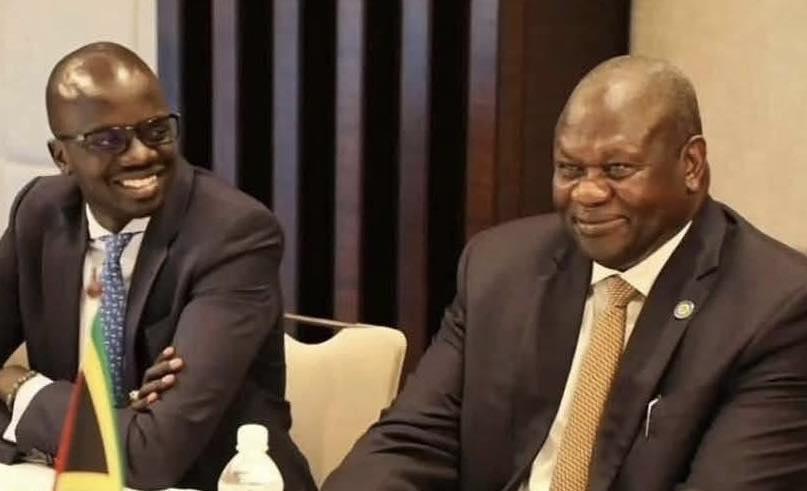Africa-Press – South-Sudan. The legal team representing South Sudan’s First Vice President, Dr Riek Machar, has filed a formal objection to the establishment of the Special Court tasked with trying him and several senior opposition officials.
The defense argues the court lacks jurisdiction and competence under the country’s legal and constitutional framework.
The objection was submitted during Monday’s session, with lead defense counsel Dr. Gari Raymond Lege citing provisions of the Transitional Constitution and the Revitalized Peace Agreement, which he claims protect Dr. Machar from prosecution under the current arrangement.
“We have an objection to the establishment of this Honorable Special Court,” Dr. Lege told the court.
“Dr. Riek Machar, as First Vice President under Article 103 of the Transitional Constitution, should not be tried by this court, which is incompetent and lacks jurisdiction.”
Dr. Lege further argued that under the Revitalized Peace Agreement, the removal of the First Vice President can only be effected through impeachment by a two-thirds majority vote in the National Legislature—not by judicial proceedings.
The defense called on the court to declare the Special Court null and void ab initio, referencing Article 104 of the Transitional Constitution, as well as Regulations 62 and 63 of the Conduct of Business of the National Legislature (2013, as amended in 2021). They also requested the immediate release of Dr. Machar and the co-accused.
“This court is not intended for people like His Excellency Dr. Riek Machar, who is governed by the Revitalized Agreement,” Lege stated. “We pray for the immediate discharge and release of Dr. Machar and his colleagues.”
The defense’s motion has been formally entered into the court record. A panel of judges is expected to deliberate before determining whether the trial will proceed under the current court structure.
The prosecution team has rejected the defense’s claims, describing the objection as “weak” and “unsubstantiated.”
Advocate Ajo Noel Ohisa, a member of the prosecution team, defended the establishment of the Special Court, citing constitutional provisions that grant the judiciary authority to constitute such bodies.
“The Constitution and the Judiciary Act of 2008 provide for the creation of other courts and tribunals as necessary,” said Ohisa. “This authority is clearly stated in Section 7F of the Judiciary Act, and Section 9 outlines the procedures applicable to such courts.”
He emphasized that the Special Court is composed entirely of Supreme Court justices, which, in his view, satisfies the requirements for competence and legal authority.
“These members are all Justices of the Supreme Court,” he said. “Even if their powers mirror those of a High Court, the High Court has unlimited jurisdiction to entertain such matters.”
Ohisa also pointed out that the charges filed against Dr. Machar and others stem from Chapters 5 and 6 of the Penal Code Act, which cover offenses against the state and the armed forces.
“The argument that this court lacks competence lacks substance,” he added. “These are serious charges, and this court is legally mandated to hear them.”
The court will now consider the objection before ruling on the future of the proceedings. A decision is expected in the coming days.
For More News And Analysis About South-Sudan Follow Africa-Press






